Assyrian Community
The Assyrian community in Chicago has a rich history spanning over a Century
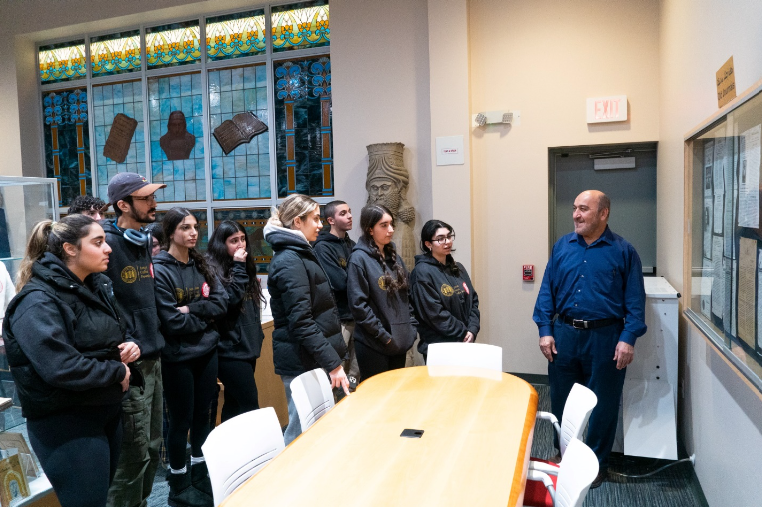
At the Ashurbanipal Library in Lincolnwood, Illinois. Mr. Ninos Nirari, one of the librarians at the Ashurbanipal Library explains a collection of old Assyrian newspapers. (Courtesy of the Assyrian Cultural Foundation, 2023)
The very long history of the Assyrian people is one of the most fascinating in the world.
The Assyrians who settled in the Chicago area are from northern Mesopotamia, known as Assyria, which is now divided into parts of Iraq, Turkey, Iran, and Syria. Attracted by the numerous opportunities for work, Assyrians began to arrive in the area in the late 19th Century.
The Assyrian people originated in Assur, the sacred capital city of Assyria, thousands of years ago. From Assur, the Assyrian state grew to become a regional power contending with Egypt and the Hittites, and later triumphed to become the first world empire in history, amassing greater territory and population than any other power before it.
Although the Assyrians have traditionally been known as a warrior nation, the fact is that their empire relied more on the diplomatic and economic sophistication of its rulers than war. For close to a thousand years, Assyrians ruled over what they termed ‘the known world.’
Following the decline of their ancient empire, Assyrians coexisted with various peoples throughout the centuries; Persians, Arabs, Turks, Kurds, Azeris, and other peoples of the Middle East.
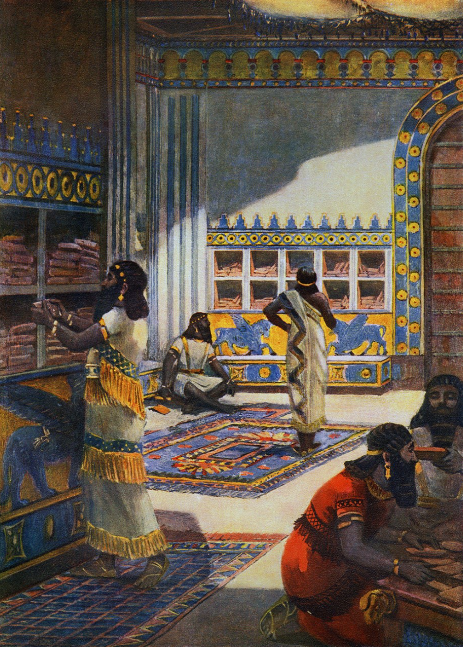
The ancient Library of Ashurbanipal was the inspiration for the Ashurbanipal Library in
Chicago in the late 1980s.
Assyrians are not only proud of their ancient glories, but of their Syriac Christian heritage as well. The Church of the East became the greatest missionary enterprise the world had known. Assyrians spoke Aramaic (or modern Assyrian), which has roots in ancient Akkadian as well as the Aramaic their forefathers adopted throughout their empire and known as ‘the writing of the Assyrians.’
Devastated by the First World War by the Ottoman empire, the Assyrians lost two thirds of their number in the Assyrian genocide (often termed Seyfo, or the ‘[year] of the sword’), an event that led to migrations into Russia, Europe, and the United States.
The Assyrian community in Chicago is estimated to number 100,000, and has been recognized as one of the most culturally vibrant centers of the Assyrian world, along with the Detroit area, Phoenix, and various cities in California.
For the Assyrians, the contact with America came primarily through American Presbyterian missionaries in Urmia (now Iran), who encouraged Assyrians to seek opportunities in the United States. The earlier Assyrian arrivals, starting from 1889, were young men who had received education in missionary seminaries and came to continue their studies or seek employment. Several influential missionaries in Urmia hailed from Chicago, including members of the prominent Shedd family. Assyrian young men settled in the vicinity of Clark and Huron streets, near religious institutions familiar to them. By 1920, many of them found employment in various fields.
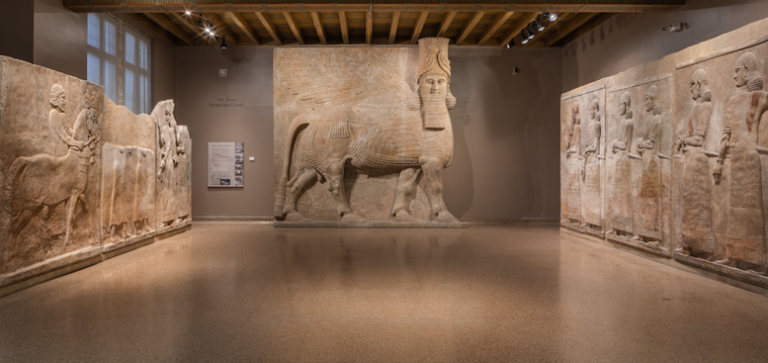
Chicago is home to the Institute for the Study of Ancient Cultures (formerly the Oriental Institute), which houses a substantial number of ancient Assyrian artifacts brought from the Assyrian homeland to Chicago in the 1920s.
After the First World War, the Assyrian population increased due to an influx of deportees, growing from hundreds into the thousands. As a result, Assyrian organizational development took on substantial growth within the community. To assist and rebuild the lives of the deportees, Assyrians participated in the Paris Peace Conference in 1919, in an attempt to obtain a comprehensive solution to the Assyrian plight. In Chicago, the Assyrian American Association, which is still active, was founded in 1916. Interestingly, one of the oldest produced Assyrian songs was produced in Chicago in 1917 by Joseph and Anna Yonan.[1]
The Assyrian community flourished culturally and socially, as its members made economic advancements and settled in neighborhoods such as Lincoln Park and Lake View, producing books and periodicals in Assyrian. Proud of their unique heritage, the Assyrians integrated themselves into the fabric of Chicago’s life.
During World War I, Assyrians actively sold Liberty Bonds and formed the Assyrian American Illinois Volunteer Training Corps, and contributed numerous soldiers to the war effort. In 1947, Assyrian veterans established the American Assyrian Amvet Post, which remains active to this day. Assyrians also established their own congregations, conducting services in Syriac within established denominations. Along with the Assyrian Church of the East, the Fourth Presbyterian Church played a significant role in the lives of Assyrians. In addition, the Chaldean Church was also settled in Chicago, and later the Syriac Orthodox Church.
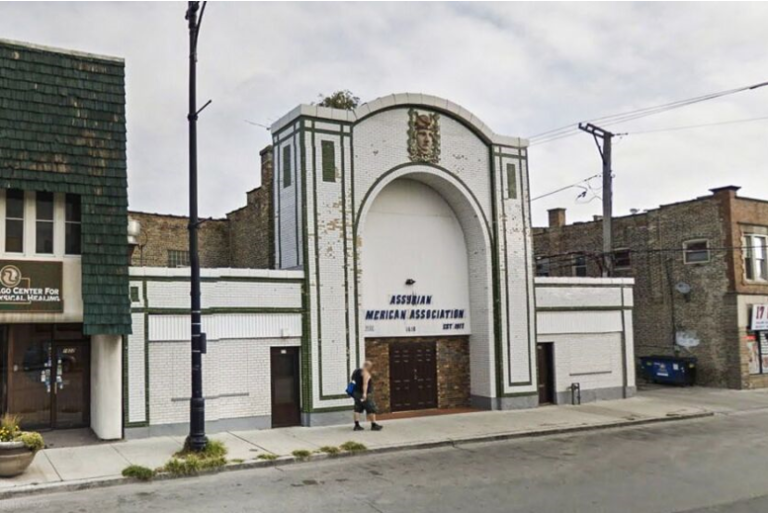
The Assyrian American Association was the oldest Assyrian organizations, and celebrated its 100 year anniversary in 1917. The building was recently sold and the organization is in the process of purchasing a new building.
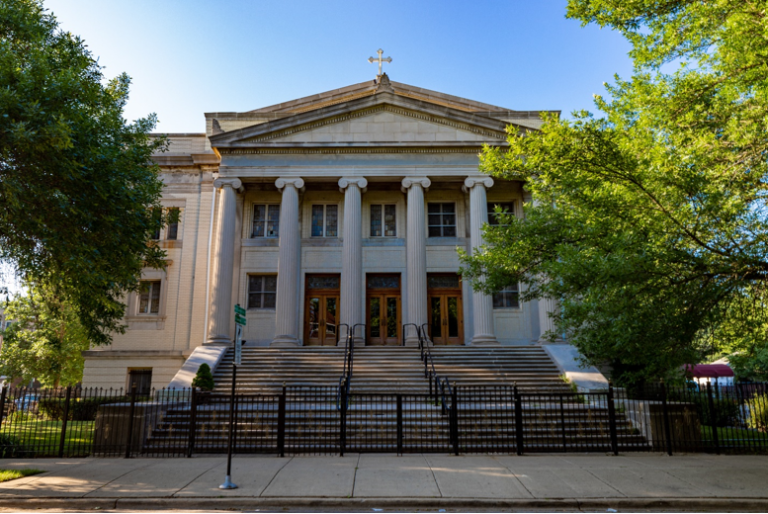
Chicago is home to one of the largest Assyrian churches, Mar Gewargis cathedral, which has been serving the members of the Assyrian Church of the East for decades.
From the 1920s to the 1950s, Assyrian immigration to Chicago was relatively stable but not significant. 1960s, the numbers increased, with Assyrians arriving from Syria, Lebanon, and Iraq in particular, especially after the 1970s. Assyrians in Iraq had often worked for the British as contractors. The nationalization of enterprises disrupted their economic position and led to further emigration from Iraq. After 1980, the Iraq-Iran war led to significant emigration. This trend grew with the arrival of the Persian Gulf War in 1991, and the subsequent US invasion of Iraq in 2003.
The Chicago Assyrian community grew significantly, as did its business ventures, entrepreneurs, and professionals. By 1990, Assyrians owned hundreds of businesses. At one time, Assyrians owned virtually all video rental stores in the north side of Chicago. Today, the community boasts numerous grocery stores, real estate and mortgage firms, medical and dental clinics, law offices, restaurants, mechanic shops, and other individual businesses.
Assyrians are a close-knit community, and share an Eastern Christian faith that promotes the value of education, respect for elders, the law, and admiration of a strong work ethic.
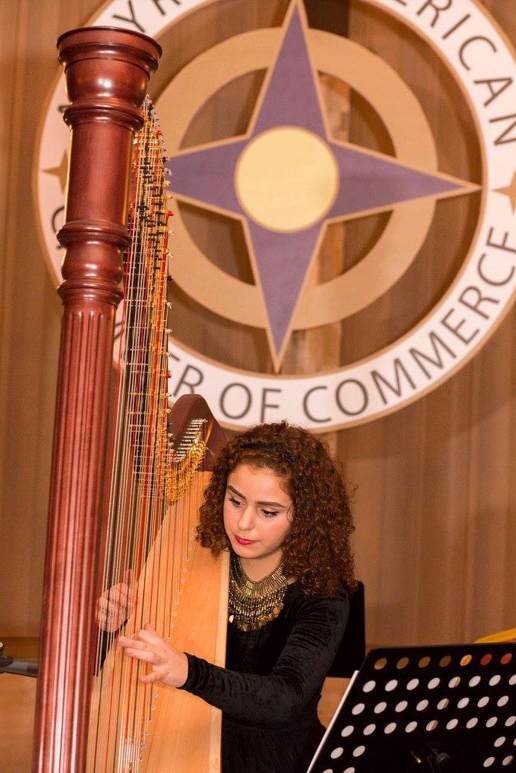
Diala Michael, a young Assyrian musician, playing the harp during the Assyrian Chamber aware dinner in 2016.
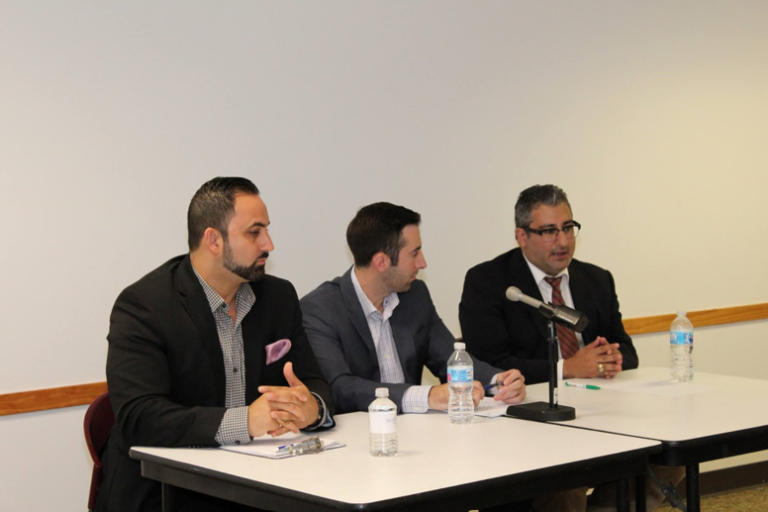
Assyrian attorneys Paul Youkhana, Sevonny Avakian, and Mark Ishu discuss legal issues at a seminar in Chicago. (AACC, 2017)
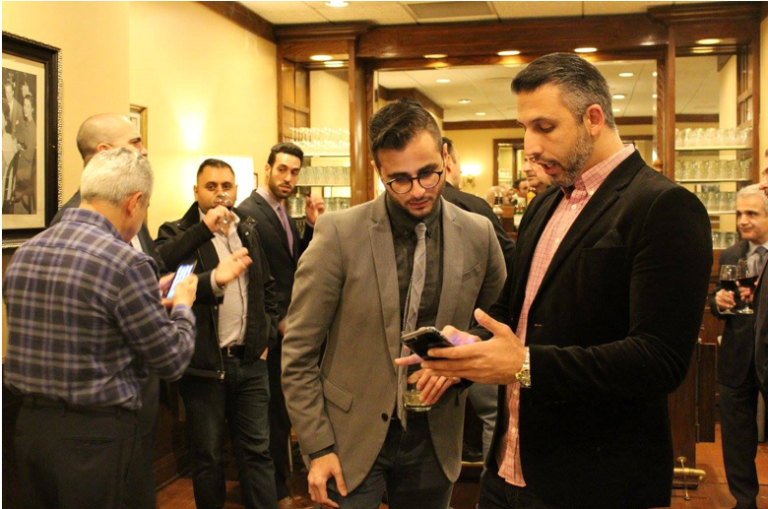
Assyrian Chamber networking event (AACC, 2017).
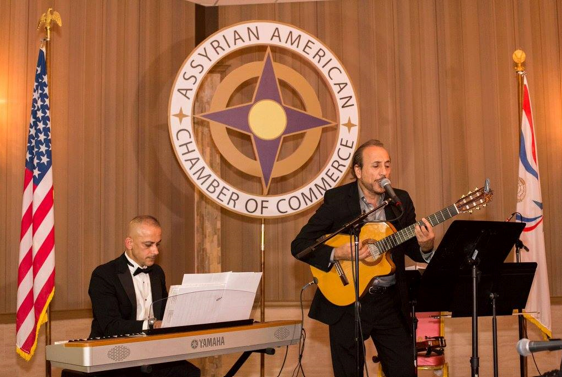
Popular Assyrian artist Ogin Bet Samo performs with musician Ather Youkhana at the Assyrian Chamber’s Award Dinner in 2015.
